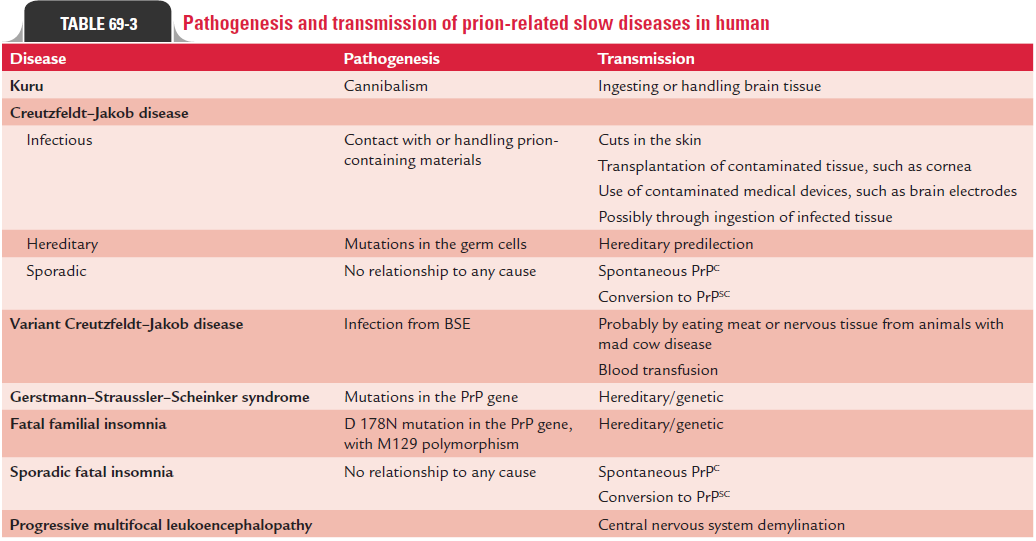Chapter: Microbiology and Immunology: Virology, Virus: Slow Viruses and Prions
Pathogenesis and Immunity - Slow Diseases Caused by Prions
Pathogenesis and Immunity
Prion disease is transmitted either orally or transcutaneously. But how the prions reach the CNS, their target, is yet to be understood fully. It is believed that a functional immune system is essential for replication of prions and their transport to the reticuloendothelial cells. In these cells, large amounts of prions are present in the follicular dendritic cells as well as in the sympathetic nerve endings. From these sites, the prions reach the CNS—but how they reach the CNS is still an impor-tant issue. It is suggested that the prions may reach the CNS via splanchnic nerves at the level of the thoracic spinal cord and via parasympathetic fibers connecting with the brain. The other possible route is by the blood circulation.
In experimental animal studies carried out in chimpanzees, Prusiner demonstrated that scrapie protein (PrPSC) binds to the normal cellular prion protein (PrPC) of the host. PrPC is found in most tissues of the body but is expressed in higher quantities in the CNS particularly the neurons, the main site of action of prions. PrPSC is ingested by neurons and phagocytic cells but continues to remain intact without being degraded. This may contribute to vacuolation of the neuron, a key pathological change observed in encephalitis caused by prions. In addition, accumulation of prions in high concentration causes damage in the brain tissue. These include the formation of amyloid-containing plaques and fibrils, a proliferation and hypertrophy of astrocytes, and fusion of neurons and adjacent glial cells.
Pathogenesis and transmission of prion diseases in humans are described in Table 69-3.

◗ Host immunity
The prions cause encephalopathy, a condition which denotes a pathologic process in which no tissue inflammation or no immune responses are induced in the host, by which it is dif-ferentiated from that of viral encephalitis. In the symptom-atic patients, a protein called 14–3–3 brain protein has been detected in the cerebrospinal fluid (CSF).
Related Topics